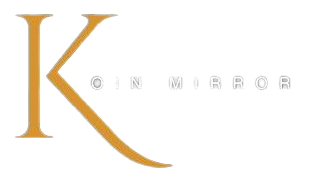[ad_1]
Key Takeaways
- Elementary Variations: Digital storage and administration are integral to the digital world, with the disparity between a database and a blockchain being important.
- Database: Structured repository facilitating easy accessibility, manipulation, and group of information.
- Blockchain: Sequential chain of information blocks, decentralized and distributed throughout a number of community nodes.
- Important Variations Between Database and Blockchain: CRUD vs. Learn and Write Operations, Belief, Confidentiality, Robustness, Efficiency.
Database
A database is a structured storage of data that makes use of easy accessibility, manipulation, and group.
Info is saved in rows, columns, and tables, listed for swift restoration.
Operations similar to Create, Learn, Replace, and Delete (C.R.U.D.) are normal, permitting adjustments to information.
Possession is centralized, and a delegated authority controls it. This could render it weak to breaches.
Blockchain
In distinction, a blockchain operates as a steady chain of information blocks, decentralized and distributed throughout a number of community factors.
Management is dispersed amongst community members, who collectively validate and connect new blocks by way of algorithms.
Information inside blocks is everlasting and proof against tampering or deletion.
Diversified consensus protocols, like Proof of Work and Proof of Stake, govern completely different blockchains.
Important Variations Between Database and Blockchain
- CRUD vs. Learn and Write Operations
Conventional databases allow CRUD operations, enabling customers to change information as wanted.
Blockchain, nevertheless, enforces immutability, stopping modification or deletion of recorded transactions.
Blockchain ensures information integrity and authenticity resulting from its immutable nature, instilling confidence in customers.
Conventional databases could lack such assurance, prone to unauthorized alterations.
Public blockchains supply transparency, whereas permission blockchains limit entry akin to conventional databases.
For delicate information, a non-public database could supply comparable confidentiality with out the complexities of blockchain.
The distributed nature of blockchain enhances resilience towards assaults, as no single level of failure exists.
Conventional databases could battle to match such fault tolerance.
Blockchain’s consensus mechanism, necessitating settlement amongst factors, can decelerate transaction processing.
Conventional databases sometimes exhibit quicker efficiency and scalability, essential for real-time purposes.
Selecting between a database and a blockchain depends upon particular necessities and issues. Whereas blockchain provides unparalleled safety and decentralization, conventional databases are higher in velocity and scalability. Understanding the ins and outs of every system is important for making knowledgeable selections whereas utilizing blockchain applied sciences.
[ad_2]
Source link

